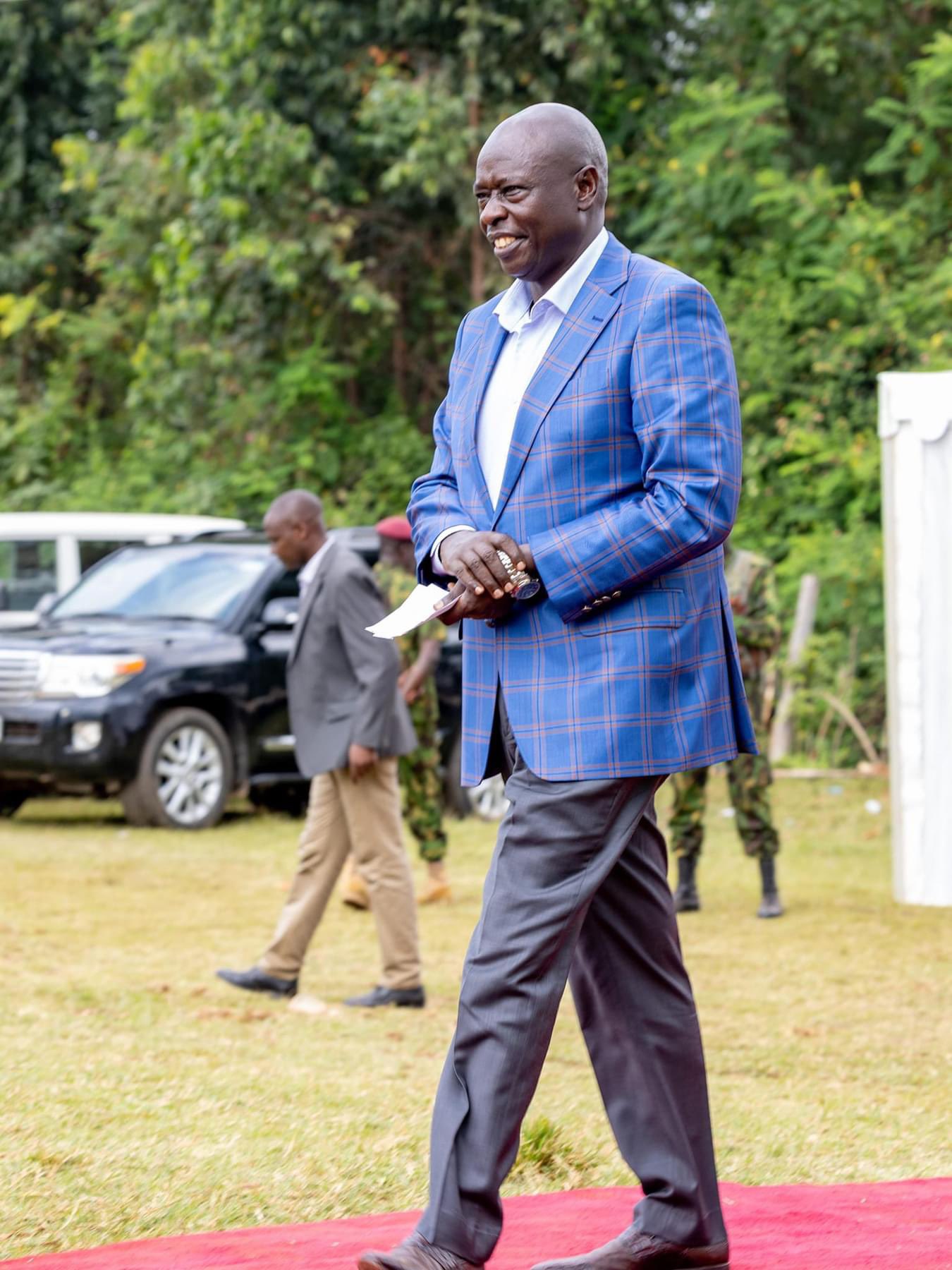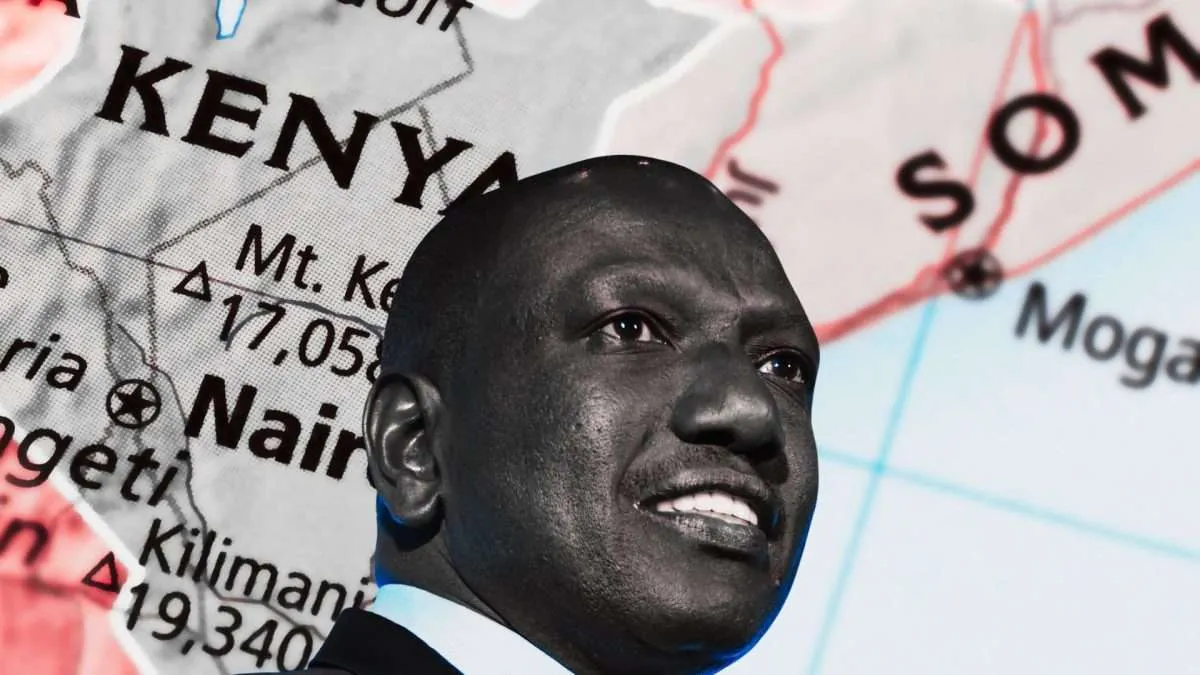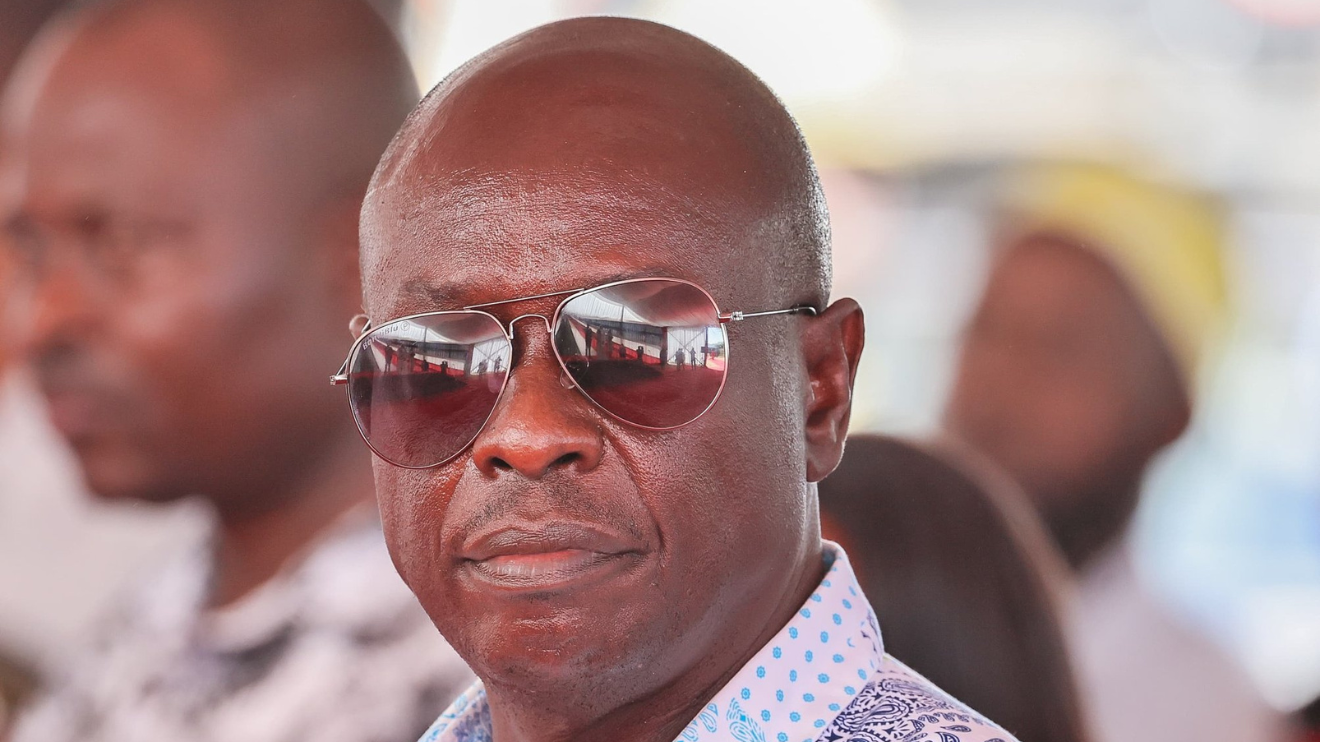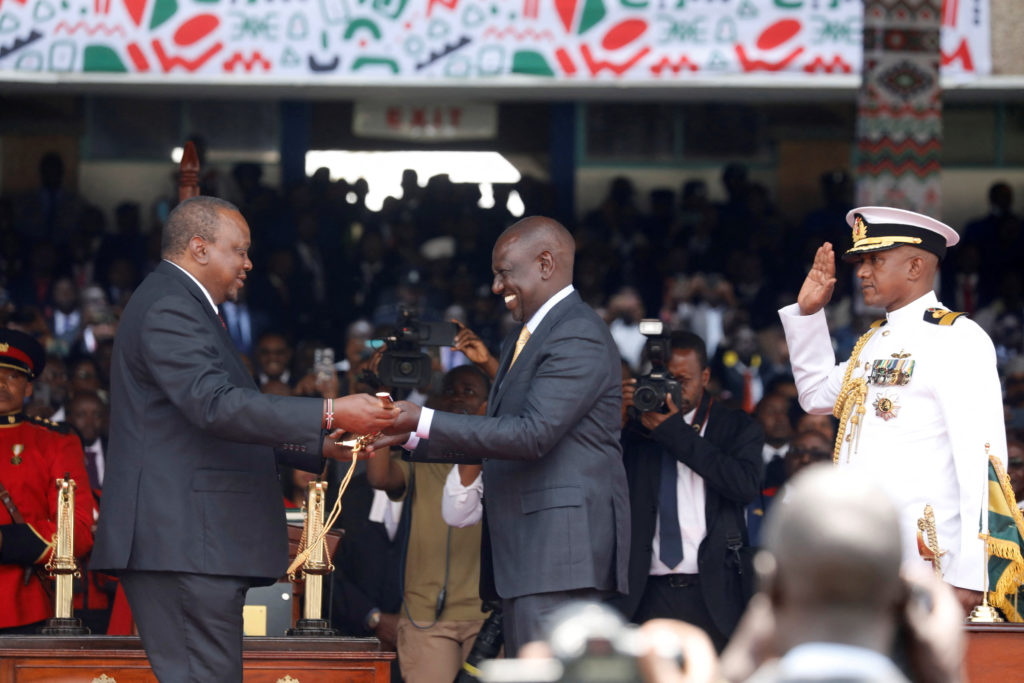Politics
Rigathi Gachagua Impeached: Corruption, Controversy & Allegiance
For Rigathi Gachagua, his fall from grace is a stark reminder that political power is transient, and even the most influential individuals cannot escape the repercussions of their actions. As Kenya progresses, Gachagua’s impeachment stands as a testament to accountability and the persistent strength of justice against a backdrop of impunity

Born on February 28, 1965, in Mathira, a village within the vote-rich Mount Kenya region, Geoffrey Rigathi Gachagua’s journey into Kenya’s political limelight is as complex as it is controversial.
Gachagua’s family background is deeply rooted in Kenya’s fight for independence, with his parents participating in the Mau Mau rebellion against British colonial rule.
These early connections to Kenya’s liberation struggle formed part of the narrative he would later use to bolster his political credentials.
Education and Early Career
Gachagua’s academic journey began at Kabiruini Primary School between 1971 and 1977. He then proceeded to Kianyaga High School for his O-level and A-level education.
In 1985, he joined the University of Nairobi, where he studied Political Science and Literature, graduating in 1988.
During his university years, Gachagua emerged as a student leader, serving as the Nyeri District University Students Association (NDUSA) leader and chairing the Association of Literature Students.
Following his university education, Gachagua’s career took a notable turn when he underwent paramilitary training and became a District Officer (DO), a position that placed him in charge of internal security under the repressive regime of President Daniel arap Moi.
In his role as a DO, Gachagua wielded significant power, using his position to build a vast network of business and political connections. It is during this period that allegations of him being an informant for the Special Branch—Moi’s notorious internal security apparatus—first surfaced, with accusations that he betrayed fellow students who opposed the regime.
First Foray into Politics: The Kenyatta-Ruto Alliance
Gachagua’s formal entry into politics came much later in 2017 when he ran for office in his tea and coffee-rich hometown of Mathira, vying for the Mathira Constituency parliamentary seat.
At the time, he aligned himself with President Uhuru Kenyatta and his then-deputy, William Ruto.
This partnership propelled him to victory and established him as a key figure in the Jubilee political machine.
However, the once-strong Kenyatta-Ruto alliance crumbled ahead of the 2022 general elections, and Gachagua found himself at a crossroads. Siding with Ruto during the split, Gachagua became a target of the Kenyatta administration, facing multiple arrests and corruption charges.
He famously described these charges as politically motivated, aimed at silencing his dissent.
In a particularly dramatic moment in July 2021, police raided Gachagua’s home and allegedly stripped him near-naked in front of his children during a high-profile arrest. The event only fueled his claim that the Kenyatta administration was using state machinery to persecute him.
Corruption Allegations: Billions in Unexplained Wealth
One of the defining controversies in Gachagua’s political career has been the numerous corruption allegations tied to his name.
In 2021, Gachagua was charged with acquiring Ksh 7.3 billion ($57 million) in unexplained wealth through fraudulent means, including government tenders and procurement irregularities. These funds were allegedly funneled through an intricate web of shell companies.
When William Ruto assumed the presidency in 2022, and Gachagua became Deputy President, the corruption case was promptly withdrawn, raising questions about political interference in Kenya’s judiciary.
While the Directorate of Public Prosecutions (DPP) cited insufficient evidence for the case’s dismissal, critics, including opposition leaders, viewed it as a glaring example of impunity.
Despite the withdrawal of this case, Gachagua continued to face accusations of amassing substantial wealth during his time as Deputy President. Lawmakers have alleged that he accumulated an additional Ksh 5.2 billion ($40 million) in just two years in office, despite his official annual salary being a mere $93,000.
Gachagua has consistently denied these allegations, attributing his wealth to his family’s business dealings in real estate, hospitality, and construction.
In his defense, Gachagua asserted, “All the problems that I am going through are because I am a truthful man. I speak bluntly, and many people don’t like that.”
The Family Property Scandal
In addition to the corruption charges, Gachagua found himself embroiled in a scandal involving the estate of his late brother, Nderitu Gachagua, the former Nyeri Governor.
During his impeachment proceedings, Senior Counsel James Orengo presented allegations that Gachagua had exploited his brother’s illness to gain control of his estate.
Orengo claimed that in February 2017, Gachagua traveled to London, where his brother was receiving treatment, and coerced him into signing a will just days before his death.
“By the time the former Governor passed away, Gachagua had already begun withdrawing money from his accounts,” Orengo told the Senate, adding that fellow executors of the will had raised concerns about Gachagua’s actions. The scandal intensified public scrutiny of Gachagua, further tainting his political image.
However, Elisha Ongoya, Gachagua’s defense counsel, rebutted these claims, arguing that Orengo’s accusations lacked substantial evidence.
“The constitution expects credible evidence for such serious allegations. This case does not meet those standards,” Ongoya told the Senate.
Political Fallout with President William Ruto
Gachagua’s relationship with President William Ruto began to deteriorate in 2024 as public discontent over the country’s economic challenges mounted.
Once a loyal deputy, Gachagua found himself at odds with Ruto as internal political tensions escalated. Despite attempts at reconciliation, Ruto reportedly distanced himself from Gachagua, fueling speculation of a brewing political rift.
In October 2024, the political fallout came to a head as the Senate impeached Gachagua, marking the end of his tenure as Deputy President. The impeachment was the culmination of years of controversy, scandal, and political maneuvering that ultimately undermined Gachagua’s political career.
A Legacy of Controversy
From his humble beginnings in Mathira to his rise as Kenya’s second-highest-ranking politician, Gachagua’s political journey has been anything but ordinary.
His story is one of ambition, controversy, and survival in the cutthroat world of Kenyan politics.
While Gachagua maintains that his wealth and political success are the result of hard work and loyalty, his legacy will likely be defined by the scandals, allegations of betrayal, and the corruption charges that plagued his career.
As Robert Wafula Buke reflected on Gachagua’s past, he said, “He profited from the pain of others, and in the end, his actions caught up with him.” Similarly, Miguna Miguna commented, “His impeachment is not just about one man; it’s about addressing the culture of impunity in Kenya’s politics.”
For Gachagua, the fall from grace is a sobering reminder that political power is fleeting, and even the most well-connected figures are not immune to the consequences of their actions. As Kenya moves forward, the impeachment of Gachagua serves as a lesson in accountability and the enduring power of justice in the face of impunity.
Keywords:Rigathi Gachagua impeachment:Kenya Deputy President controversy:Gachagua corruption allegations:Moi regime student spy:Political fallout in Kenya
Politics
William Ruto’s First Year: Promises Made, Struggles Persist
President Ruto cannot fulfil his manifesto unless he curbs runaway corruption and holds culprits accountable. The rule of law requires recovering proceeds of crime and prosecuting offenders for economic sabotage. This strategy would reduce the need to overburden Kenyans with taxes and additional borrowing.

: Kenya’s President William Ruto faces challenges in fulfilling promises on governance, the economy, and national cohesion. Can he turn things around before 2027?
It’s more than a year since President William Ruto was sworn into office as Kenya’s fifth president.
He took office during a period of rising food and fuel prices, high unemployment, and a troubling debt burden in Kenya.
During the election campaign, Ruto promised to fix an economy afflicted by corruption and ineptitude. He promised to entrench good governance and place the poor at the centre of economic policy.
He pledged to address ethnicised politics and to uphold constitutionalism and the rule of law.
Ruto’s promises were significant. The rule of law and constitutionalism are key to economic planning and development, governance and equitable sharing of national resources.
They are the guardrails against impunity, democratic backsliding, lawlessness and political instability.
Throughout Kenya’s postcolonial period, the political elite have exploited ethnicity to obtain power at the expense of the collective well-being and social cohesion.
Elite entitlement has also weakened state institutions, leading to corruption and impunity.
I have studied democratic transitions, conflict and state building and elections in Africa.
My 2018 book examined how the political class had exploited ethnicity for political and economic advantage, resulting in weak and even dysfunctional state institutions in Kenya.
In his election campaign, Ruto identified the major issues that required urgent attention.
He addressed issues that needed swift action without constitutional changes, such as thawing the tension between the executive and the judiciary, decoupling the police finances from the executive, and taking port operations back to the coastal city of Mombasa from the inland town of Naivasha.
But resolving Kenya’s economic hardships has proved a hard nut to crack, as his 9 November 2023 State of the Nation address acknowledged. Just over a year since he was sworn in, Ruto is no nearer to turning the Kenyan ship around.
ECONOMIC TURBULENCE
As a candidate, Ruto portrayed himself as an outsider to Kenya’s power matrix who was best placed to improve the living conditions of the poor and excluded. But the economy has not improved under his watch. If anything, living conditions have worsened.
The cost of living is higher after a steep increase in the petrol price and the local currency’s loss of value. Ruto’s government has imposed new and increased taxes on Kenyans, ostensibly to reduce or remove the need for external borrowing.
The government was quick to remove fuel and food subsidies but has been slow to address government wastage.
The government’s key strategy was to subsidise fertiliser to boost harvests and achieve food security. It remains to be seen whether this will happen.
More deliberate measures are required to turn around agriculture as the mainstay of the economy.
On the question of centring the poor and marginalised in governance, Ruto focused on the financial sector. The government rolled out the “Hustler Fund” to make credit more affordable.
But the fund’s impact on overall living standards through job creation, for instance, is likely to be cancelled out by a punitive tax regime and a struggling economy.
RULE OF LAW
Ruto’s first public event as president was to approve the appointment of six judges left in limbo by his predecessor, Uhuru Kenyatta. He also made good on his promise to allocate more funding to the judiciary.
However, to entrench the rule of law and constitutionalism calls for more than this. Judicial officers must act with utmost integrity. To affirm equality before the law, errant senior state officers and the political elite must face the law and if found guilty sanctioned decisively.
The Kenyan judiciary is still bedevilled by corruption that impedes access to justice. Disturbingly, it is seen as more inclined to punish the poor while letting the rich and political elite act with impunity.
Ruto himself has obeyed court rulings that went against him, unlike under Kenyatta, when disregard for the law was the norm. Critics, however, including the Law Society of Kenya, have accused his administration of disobeying court orders like his predecessor.
Ruto spoke out against extrajudicial and summary executions and enforced disappearances perfected by the police over the years.
He sought to accord the police financial and operational autonomy. Thus he transferred accounting for the police budget to the police as he had promised.
Despite these changes, a culture of impunity and lack of transparency continues to undermine the Kenyan police. Extrajudicial executions continue. The police must be placed under civilian oversight as envisaged under the constitution.
The failure to set up a commission of inquiry into state capture under his predecessor, as promised during campaigns, dented Ruto’s commitment to the fight against corruption. A year later, a commission of inquiry has not been formed and the issue seems to have been abandoned altogether.
It is unlikely that Ruto will fulfil his manifesto unless he reins in runaway corruption and the culprits are held to account.
The rule of law demands that proceeds of crime be recovered and offenders charged for economic sabotage. This approach would obviate the need to burden Kenyans with taxes and more borrowing.
NATIONAL COHESION
Appointments to government positions have been undermined by the age-old problems of recycling appointees, patronage, nepotism and ethnicity. Just as worrying are senior government officials publicly advancing exclusionary ethnic politics with impunity. Ruto must rein them in.
It is also a setback that Ruto acceded to talks to assuage the opposition elite who had resorted to violent protests against his historic victory. These elitist self-serving talks could lead to constitutional amendments creating more political positions under a cynically flawed logic that this approach enhances national cohesion.
This is an about-turn on Ruto’s part.
Ultimately national cohesion is Ruto’s pressing challenge.
Kenya is divided on many fronts – economic, ethnic, regional and religious – a legacy of previous governments.
Ruto needs to look beyond ethno-regional appointments. For legitimacy and transformation, he needs to ideologically reconnect with and dignify the “hustler nation”, the disenfranchised constituency that propelled him into power. Bar this, he could face an intensely contested reelection bid like his predecessors.
Politics
Rigathi Gachagua’s Impeachment: A Political Conundrum for Ruto’s Administration
Former Deputy President Rigathi Gachagua’s impeachment has transformed Kenya’s political landscape, marking the first event of its kind under the 2010 Constitution.

: Explore the political crisis after Rigathi Gachagua’s impeachment, its impact on William Ruto’s leadership, and the road to Kenya’s 2027 elections.
The impeachment of former Deputy President Rigathi Gachagua has upended Kenya’s political landscape, marking the first instance of such an event under the 2010 Constitution.
Accused of divisive politics and judicial interference, Gachagua’s ousting has ignited significant political tensions, particularly within the populous Mt. Kenya region, which has been a cornerstone of President William Ruto’s support base.
Gachagua has vocally criticised Ruto, describing his former ally as “vicious” and accusing him of orchestrating the impeachment.
In a fiery statement, Gachagua claimed, “The man I helped to become president has betrayed me,” while also alleging threats to his safety.
His impeachment has left the deputy presidency in limbo, with a court temporarily halting the appointment of Interior Minister Kithure Kindiki as his replacement.
Impact on Ruto’s Political Strategy
This political rift presents a dual challenge for Ruto. On one hand, it exposes cracks within the ruling coalition, with some legislators fearing backlash in their constituencies for supporting Gachagua’s removal.
On the other, it provides opposition leaders an opportunity to capitalise on perceived disunity within the government, potentially reshaping alliances as the 2027 elections approach.
Moreover, Gachagua’s removal has highlighted the volatile nature of Kenyan politics, where loyalty often shifts based on regional and ethnic dynamics.
Analysts believe Ruto must now tread carefully to maintain his hold over Mt. Kenya, a region critical to his electoral prospects.
The Way Forward
The administration must immediately stabilize governance by resolving the court dispute over Gachagua’s replacement or reconciling with dissenting factions.
Political analysts suggest that Ruto should focus on unifying his coalition and delivering tangible results to counter opposition narratives.
As Kenya moves closer to the 2027 polls, this episode underscores the importance of political cohesion and strategic messaging. Whether Ruto can overcome this challenge or face further fallout will significantly shape the country’s political trajectory.
Politics
Kenya Under Ruto: Transformative Leadership or Mounting Challenges?
Ruto’s policies have sparked mixed reactions on the social front. While he has taken a prominent role in addressing global challenges like climate change—evident in hosting a landmark summit that secured billions in clean energy investments—critics contend that his focus on international priorities has overshadowed pressing domestic concerns. Issues such as food insecurity and unemployment remain unresolved, leaving many Kenyans feeling neglected despite the administration’s ambitious global commitments.

: Analyse President William Ruto’s leadership in Kenya, focusing on economic reforms, political strategies, and social challenges shaping the nation’s future.
Kenya’s President William Ruto, in office since September 2022, has faced mixed reviews regarding his leadership, particularly on economic, political, and social fronts.
Bold reforms, mounting challenges, and a mixed reception among citizens have marked his administration.
Economic Landscape
Ruto inherited an economy grappling with high debt levels ($69 billion), inflation, and global crises such as the COVID-19 pandemic and the Ukraine war.
Despite efforts to stabilise the economy, including introducing new taxes and eliminating fuel subsidies to secure loans from the IMF and World Bank, these measures have strained ordinary Kenyans.
Household essentials, including sugar and beans, saw price hikes up to 61% and 30%, respectively. Inflation moderated to 6.7% in August 2023, but economic growth is projected to be slower than the 4.8% recorded in 2022
.Key initiatives such as the “Hustler Fund,” aimed at empowering small-scale entrepreneurs, have not delivered the expected outcomes, with some analysts like Ken Gichinga calling Ruto’s economic policies “ineffective.”
However, Ruto has also promoted local manufacturing and reduced reliance on imports to support job creation.
.
Political Strategy
On the political front, Ruto has shown determination to fight corruption.
His administration has introduced measures to track government spending and eliminate payroll fraud through a Unified Personal Identification system.
He has also emphasised accountability, stating, “We shall levy a surcharge against any officer who causes a loss of public resources.” However, critics question the effectiveness of these reforms, especially in light of continued economic hardships
Ruto’s administration faced opposition-led protests over rising living costs, which turned deadly, leaving 50 people dead.
These tensions underscore the political divisions and challenges in delivering tangible benefits to Kenyans
.Social Impact
Socially, Ruto’s policies have had polarising effects. While he champions global issues like climate change, hosting a major summit that attracted billions in clean energy investments, critics argue that his focus on international engagements has left domestic issues, such as food insecurity and unemployment, unresolved.
Analysts like Nerima Wako-Ojiwa emphasise that many Kenyans are now struggling with basic needs like food, highlighting a disconnect between the administration’s priorities and grassroots realities
.Broader Context and Future
Ruto has positioned himself as a reformer, focusing on transparency and economic restructuring.
However, his administration faces the twin challenge of delivering immediate relief to struggling Kenyans while maintaining long-term fiscal responsibility.
Supporters like Joseph Mwiti argue that transformative policies take time to bear fruit, reflecting cautious optimism about Ruto’s leadership.
In sum, President Ruto’s tenure has been characterised by ambitious reforms and significant headwinds. The success of his administration will depend on balancing economic recovery, political stability, and social equity in the coming years.
-

 Politics5 months ago
Politics5 months agoFred Okengo Matiang’i vs. President William Ruto: A 2027 Election Showdown
-

 Business & Money10 months ago
Business & Money10 months agoEquity Group Announces Kshs 15.1 Billion Dividend Amid Strong Performance
-

 Politics4 months ago
Politics4 months agoIchung’wah Faces Mt. Kenya Backlash Over Gachagua Impeachment Support
-

 Politics7 months ago
Politics7 months agoPresident Ruto’s Bold Cabinet Dismissal Sparks Hope for Change
-

 Politics7 months ago
Politics7 months agoPresident Ruto’s Lavish Spending Amid Kenya’s Economic Struggles Sparks Outrage
-

 Politics6 months ago
Politics6 months agoJohn Mbadi Takes Over Kenya’s Treasury: Challenges Ahead
-

 Business & Money2 months ago
Business & Money2 months agoMeet Kariuki Ngari: Standard Chartered Bank’s new CEO of Africa. What’s Next?
-

 Politics7 months ago
Politics7 months agoKenya Grapples with Investor Confidence Crisis Amid Tax Protest Fallout





